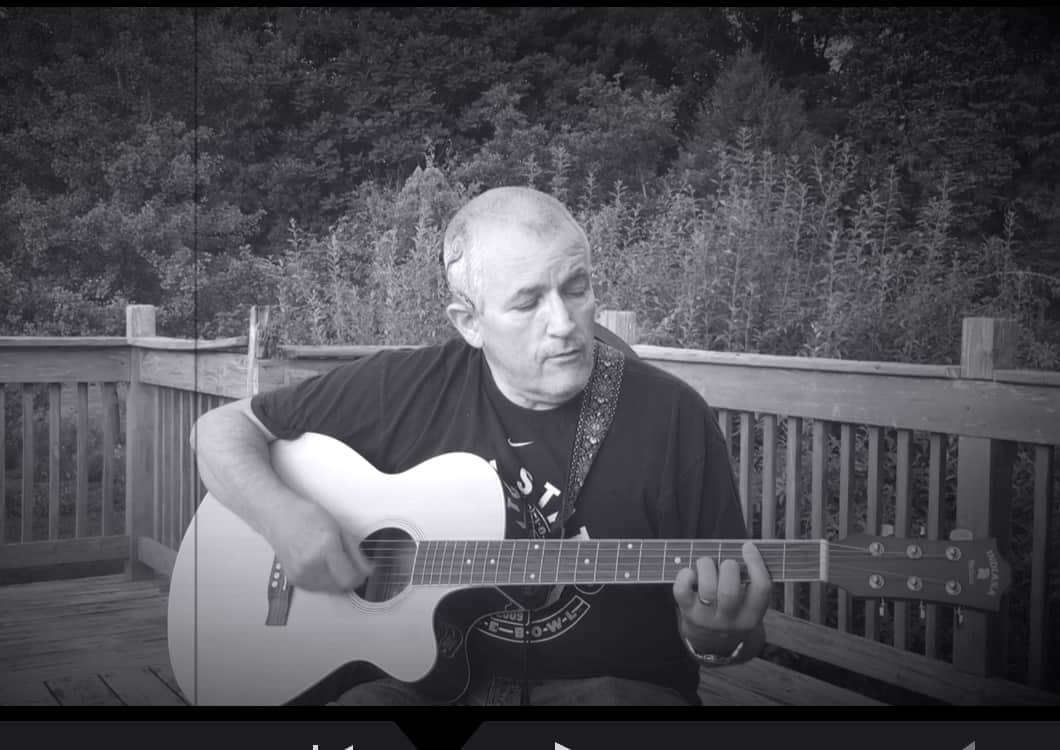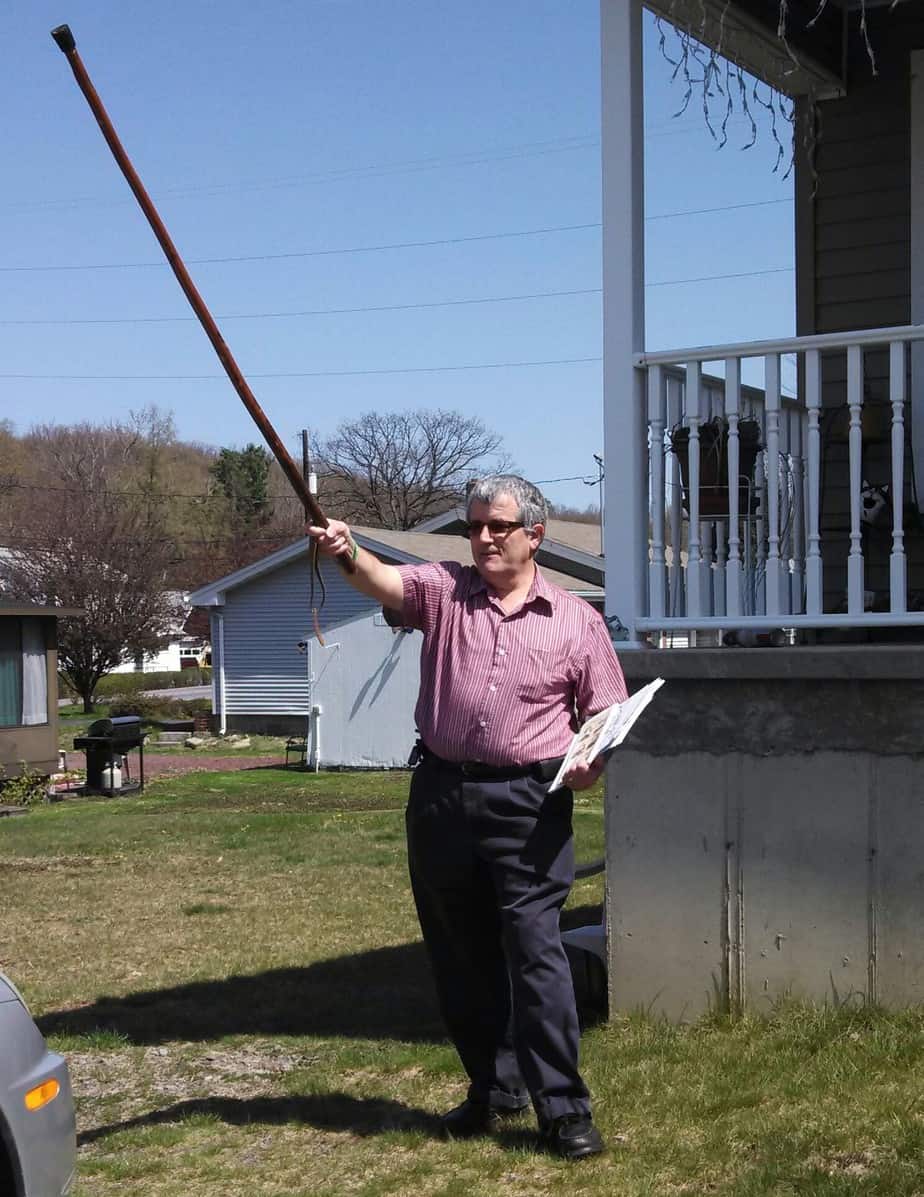Music was such an integral part of his life, but James lost his passion to listen and play as his hearing deteriorated. After struggling with hearing aids, James’ doctor urged him to consider cochlear implants. As it turned out, James was about to experience his life’s biggest musical encore.
“At some point in the 10th grade, I realized I couldn’t hear what the girls in class were saying. I assumed they were whispering because, well, 10th grade ladies do that. My parents thought otherwise and took me to a doctor. Hearing tests confirmed I had some hearing loss.
At the time, I was just learning to play guitar, but since the hearing loss was quite mild, it wasn’t holding me back. Over the next several years, I played a lot of guitar, wrote some songs, and played in bands with my best friend, Mark. All the while, my hearing declined. I ignored this, but it got harder as time went on. One of our bands was making a little money and we were constantly learning new songs. I’d listen to records and learn the guitar chords without too much trouble, but lyrics were another matter altogether. I often couldn’t decipher them. (Why did rock stars mumble so much?) My solution? I made up my own words or deliberately sang gibberish. No one noticed. (Hey, it was rock and roll!)
Struggling with hearing aids
 Then came hearing aids: first one ear, then the other. Music got harder. I had a 4-track recorder at home and recorded original songs on it. The songs were getting better, but my hearing was going over the cliff and it became impossible to record. One day I surrendered, sold the recorder, abandoned music and moved on. As my hearing loss accelerated, my hearing aids became so useless that I eventually stopped using them. I thought my hearing would slowly disappear. Instead, it went over a cliff, and I was unprepared for deafness when it came.
Then came hearing aids: first one ear, then the other. Music got harder. I had a 4-track recorder at home and recorded original songs on it. The songs were getting better, but my hearing was going over the cliff and it became impossible to record. One day I surrendered, sold the recorder, abandoned music and moved on. As my hearing loss accelerated, my hearing aids became so useless that I eventually stopped using them. I thought my hearing would slowly disappear. Instead, it went over a cliff, and I was unprepared for deafness when it came.
My family doctor saved me. He’d long been skeptical about cochlear implants, but he had a patient who nagged him into a referral for an implant. The results astounded him. He noticed my struggle with being newly deaf and urged me to consider an evaluation for a cochlear implant, starting with a visit to a local ear, nose and throat (ENT) doctor. From there, I was referred to the local hospital, where I had my first cochlear implant surgery in 2009. The second followed in 2010. I had rapidly moved from deafness to being a bilateral cochlear implant recipient. It seemed like just as fast as it left, my hearing came back, and I’d left living in silence behind me forever.
The reintroduction to music
I recall driving home after the first implant was activated. The radio was on and my wife was playing a rock station. A song came on. It sounded weak, but I recognized it immediately: ‘Life’s Been Good’ by Joe Walsh. How appropriate on my activation day! Over time, my brain continued relearning how to hear again, and I was rediscovering sounds I thought I’d lost forever. I was also hearing music well enough to try listening to things I’d never heard before. It took practice but there was slow, steady progress.
One day a few years back, I dusted off the guitar and tried playing again. I discovered I was able to play a little at last. It was still a struggle, but I could do it. When my friend Mark came to town to perform with his band, I was invited to go on stage with him. Me and my guitar again. I’d chosen to perform ‘State Trooper’ by Bruce Springsteen, matching my growing ability with material I could handle. Had things never moved past that point, I would have been satisfied. More than satisfied. Music was back in my life, and I could even play a little guitar. Joe Walsh was right: life was good.
When good turns better
 Then I upgraded to the Cochlear™ Nucleus® 7 Sound Processors, which gave me the ability to stream music wirelessly1, directly to my sound processors. It turbocharged my ability to hear music. The ripple effect was that my guitar playing improved immediately because I was getting so much ‘practice’ listening to new music. These days I stream music constantly. I stream so much I actually asked my audiologist if it might be detrimental in any way. She smiled and assured me I could stream as much music as I wished.
Then I upgraded to the Cochlear™ Nucleus® 7 Sound Processors, which gave me the ability to stream music wirelessly1, directly to my sound processors. It turbocharged my ability to hear music. The ripple effect was that my guitar playing improved immediately because I was getting so much ‘practice’ listening to new music. These days I stream music constantly. I stream so much I actually asked my audiologist if it might be detrimental in any way. She smiled and assured me I could stream as much music as I wished.
In addition to music, streaming my phone calls took the anxiety out of making and taking calls. The sound quality was excellent! I cannot imagine myself without streaming these days. It is truly a game-changer for me. Cochlear implants gave me back a life with music, but streaming has made that music sound so much better. If you see me beaming, it’s because I’m streaming!
In closing, let me share the lessons I’ve learned since my first implant in 2009:
- Surgery and activation are not the end. They are the beginning of a wonderful journey, one that never ends.
- One must Practice! Practice! Practice!
- One must have Patience! Patience! Patience!
As I said, it’s a journey. I am miles and miles from where I was after my first implant. Every CI recipient will have their own journey. My advice: take your journey one step at a time. Never be discouraged, just practice, practice, practice your listening skills, and have patience, patience, patience— oh, and do take joy in each new sound you hear.”
If you or a loved are struggling with hearing aids, click here to learn more about how cochlear implants can open up a world of opportunities.
- For compatibility information visit www.cochlear.com/compatibility